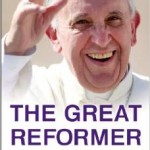Over at Patheo’s new Public Square feature, they’re talking about the legacy of Billy Graham in the 21st Century.
I’m interested in getting some Catholic input on Reverend Graham, whom I’ve always respected, particularly input from Catholics who had entered the church through a more Evangelical background. My own appreciation of him came late. I remember, as a kid, seeing ads in TV Guide for one of his “Crusades” and wondering what the Protestants were crusading about. My formerly-Lutheran Grandmother would tune into them sometimes, but never lingered long. To me they seemed like strangely exotic-yet-sterile, finally unsatisfying gatherings. Even as an 8 year-old I couldn’t appreciate a service of preaching without a Eucharistic communion to make it whole.
As I got older, though, I grew to admire Graham. In high school I read one of his books (don’t ask me, I don’t remember the title) and that got me curious enough to read about him. One of the first things I appreciated about this man — who once said “Women need a reason for having sex, men just need a place” — was how shrewdly he protected himself against being put in positions that could give rise to gossip, conjecture, or charges of impropriety, (and thus undermine or jeopardize his ministry). From an early point in his work, if he was in a room with a woman who was not his wife or a family member, all the doors would remain open.
That’s a small detail that tells a lot about Graham. It says he is aware of the baser aspects of human nature — that he very likely comes by that awareness through a recognition of his own less-edifying thoughts — and means to tempt neither himself nor anyone else. By that small, consistent action, evil lost a potent avenue of destruction: Graham negated any chance of being tempted himself, or of another being tempted; he saved others from being tempted to distort a meeting or ruin a reputation through the sins of false accusation or worse.
I’ve often thought Graham’s rule should be the number-one lesson in any seminary: don’t allow yourself to be put in a position whereby anyone can assume or imagine the worst — or charge you with it — because you simply weren’t being careful enough to keep a door open and a window unblocked. Discretion and awareness are our friends. Graham always knew that. We who put every minute of our lives up on social media without pondering how our careless utterances and actions might be used against us would do well to learn it.
“When wealth is lost, nothing is lost; when health is lost, something is lost; when character is lost, all is lost.”
Yes, it’s a little thing, but Graham’s rule means a lot. It wasn’t just self-protective, it was other-protective, which made it generous. It was a shepherd taking every precaution that wolves had as few entries as possible against into the pasture.
But of course, there is more to admire in Graham than his canniness. I’ve always liked the brevity of his faithful pronouncements, and remember being especially struck by this one:
“Christ not only died for all: He died for each.”
Right now, Calah Alexander is giving a feisty, well-written smackdown to the phrase “God never gives you more than you can handle” but Graham says it differently: “The will of God will not take us where the grace of God cannot sustain us.”
People might call these little remarks platitudinous but they’re not; they’re sound theology and as a Catholic I always found them to be completely in-line with what our popes were saying. Graham, who called Pope John Paul II “a true brother”, would have completely understood Pope Francis’ “who am I to judge?”; he was the fellow, after all, who — when asked why he would attend a dinner for Bill Clinton after the Lewinsky story broke — said, “It is the Holy Spirit’s job to convict, God’s job to judge, and my job to love.”
I wish a happy birthday to Reverend Graham. A true brother.
“We are the Bibles the world is reading; We are the creeds the world is needing; We are the sermons the world is heeding.”
How ’bout you, fellow Catholics? What do you think of Graham?
And check out upcoming topics in the Public Square.













